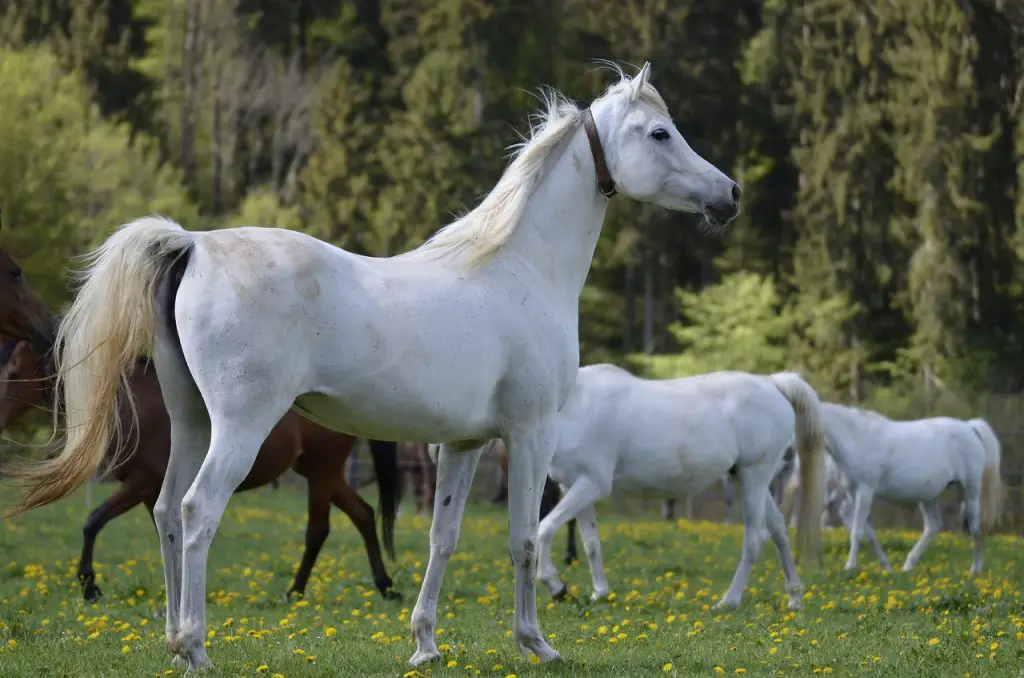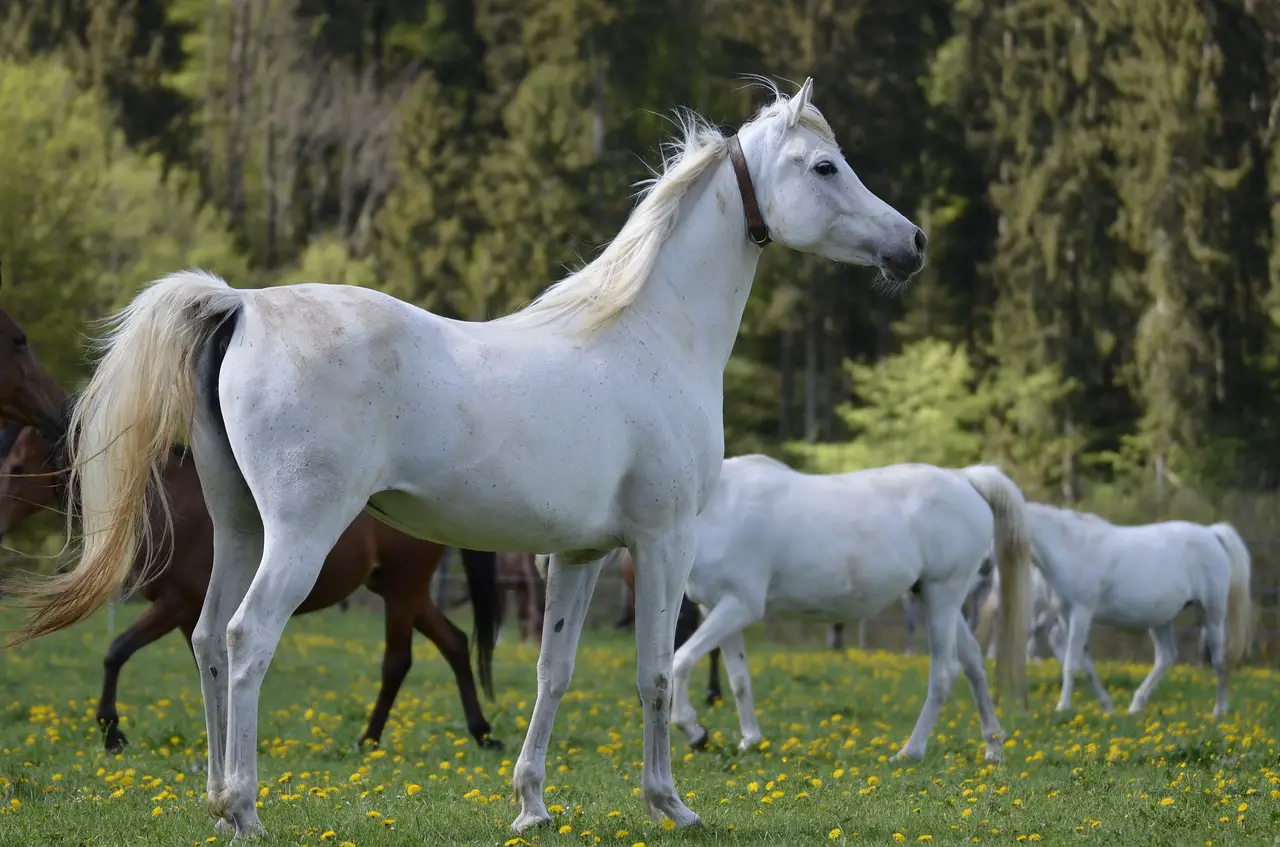Last Updated on March 31, 2022 by Allison Price
As an animal communicator, I view the problem from the perspective of the animal and not as a trainer. If a horse is being abused but has been treated well, then we humans believe he should know that no one will hurt him now and should be kind to us.
Horses are prey animals and instinctively know that they must defend themselves. If he’s been subjected to harsh treatment in the past, and sees someone approaching him now, his instinctive fight or flight response will be activated. He may bite or kick his attacker if he’s trapped in his stall. The hand might be a gesture of unhooking the lead shank from his halter. To the horse, it’s an old sign of danger. He will instinctively defend his self.
A mare that has been abused will instil fear in her young horses. This creates a “mean” horse who has never been hurt, but acts as if he has.
Take a look at the behavior of herd horse. To maintain her position as the leader mare, she must keep the rest of her herd in line. She is responsible for their safety. To enforce the rules, she acts quickly with her teeth or hooves. These rules are vital in the wild. These rules can make the difference between life or death.

Talking to animals is essential. Pictures are important for animals and children. Negative words like “not”, “don’t”, “can’t”, won’t,” and others are not represented in pictures. Although “No” can be a negative word, it is often used in a sentence and is therefore understood by the animal.
The negative words don’t register so the sentence “Don’t worry, you’re not going to be hurt” would read as “Worry, you’re going to be hurt.” This is not the message you want to convey. When you bring your cat or dog to the vet, you should say, “You’re safe, I’m going to help.” Explain to him what’s going to happen. There is nothing worse than fear. Explain to him that although it may sting for a while, the injection will keep him well and healthy. Tell him that he will eventually fall asleep if he has to have surgery. He will then wake up later and begin to heal. Explain to him that there may be some pain, but it will gradually diminish and eventually disappear.
Tell the horse that you will untie him and that he is safe. Talk to him calmly and be gentle with him. Always be careful and ensure your safety. It could take some time for your horse to trust you. This depends on how he was treated in the past.
With my horses, I try to keep my lead mare role. Both are very sweet and follower horses, but the other is a leader mare with my own horses. BB, the attitude girl sometimes challenges me with her ears back or head shakes. I respond by standing straight with my shoulders back, stepping into her space, and imagining my ears back and 6’4″ height. She always lowers her head, then takes a few steps back, apologizing along the way. She will apologize in the form of “Oops, sorry” but that is fine with me.
You can see a healing process take place when you work with animals who have been subject to abuse and witness them relax and trust. A horse that understands what I’m saying, or a cat or dog who can be touched, brings me a feeling of serenity and relief.


